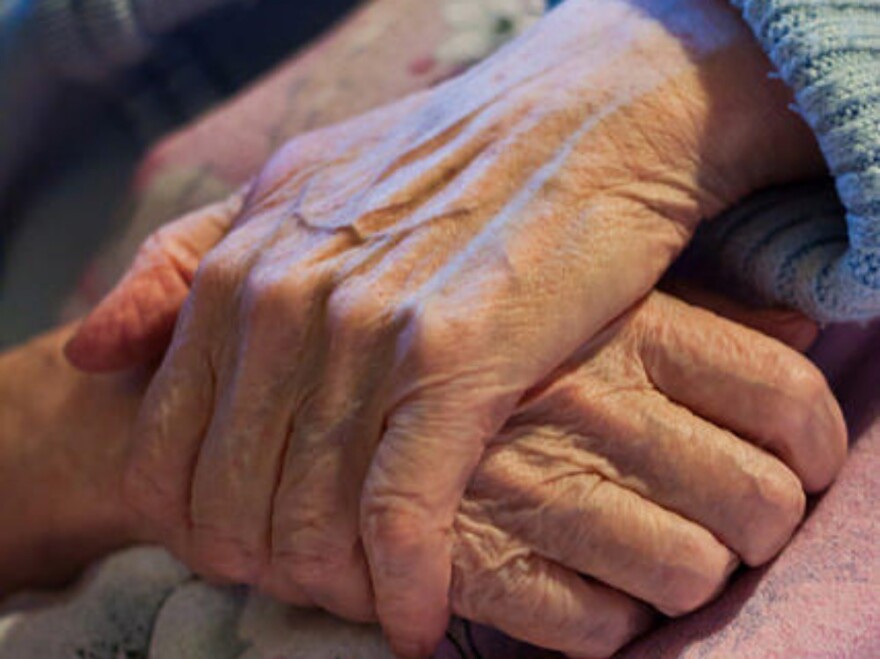It’s not a good time to be 93 years old, says DeAnn Triboulet, director of the Augusta Senior Center.
Triboulet recently talked by phone with a friend that age who has family and lots of other friends but whose social interactions have been limited for health reasons during the pandemic. Many older adults enjoy even less social connections than her friend, Triboulet said, making it imperative that people reach out to them.
"In my newsletters, I tell people to remember your neighbors, people you know that are alone," Triboulet said. "You can call, you can knock on the door, you don’t have to go in.
"Just let them know people care about them."
A Kaiser Family Foundation tracking poll in July 2020 found 46% of adults 65 and older believed worry and stress related to COVID-19 were negatively impacting their mental health. That was higher than the 31% citing a negative impact just two months earlier.
Dr. Satinder Mahal, DO, Director of Older Adult Services at Prairie View Inc. in Newton, said people in skilled nursing facilities and some assisted living facilities have been particularly isolated because of months-long lockdowns.
"Certainly, we’re seeing more depression and for some folks, more behavioral issues, too," she said. "More anxiety.
"I have one gentleman who is very irritable," she said. "He has verbally lashed out at staff and exhibited distrust of staff, asking, 'Why is this going on?'"
It’s important to try to maintain social connections and participate in meaningful activities, Mahal said.
Sunday calls
Is the older adult whose children and grandchildren live in other states more likely to be isolated than the adult with family nearby?
"I would venture to say no," said Kim Landers, director of the Haysville Senior Center.
"I have some folks that their family lives out of town but they know that every Sunday, they’re going to get that phone call or whatever, and they can look forward to it.
"But on the same hand, I’ve got people whose grandchildren live here in town and they never hear from them, never offer to take them to the store or to pick something up for them. It’s kind of sad," Landers said.
Some interactions can be brief but still beneficial, in Landers' view.
Grab-and-go lunches are available at the Haysville Senior Center — delivered lunches are another option — and Landers think people picking up their lunches look forward to "that little bit of time when they can get out of their house and either drive and walk over here and we’ll say, 'Hi, how are you doing?'
"Granted, it may be 10 or 15 minutes of their day, but it’s something they do look forward to," Landers said.
Over this past year, Augusta Senior Center’s Triboulet has taken “a lot of calls from people’s children."
"They just wanted to make sure their parents had food,” Triboulet said. "Some of them are clear across the country. It’s very touching."
Staying active
Participating in meaningful activities is one of the pillars of successful aging, said Prairie View’s Mahal. For those living in long-term care facilities, pursuing interests they had before, such as music or knitting, can provide meaningful activities.
Augusta retiree Sandee Wilbur has a craft room at home, and she has donated some art supplies to the Augusta Senior Center. She’s also given finished crafts to the center to be sold to raise money for the senior center’s fundraising drive for new flooring.
In late 2020, Wilbur joined a swap-and-share decorative paper napkin club, where some participants use the napkins for decoupage.
"You swap your napkins all over the world," she said. "I said I’ll never look at a napkin the same way again."
The coronavirus pandemic has taken lives, cost jobs and forced changes in everyday life. The mental health impact will continue, according to a February 2021 Kaiser Family Foundation report.
"History has shown that the mental health impact of disasters outlasts the physical impact, suggesting today’s elevated mental health need will continue well beyond the coronavirus outbreak itself," the report said.
"When we look back in 10 or 20 years," Landers said, "this is just going to be a horrible time."



